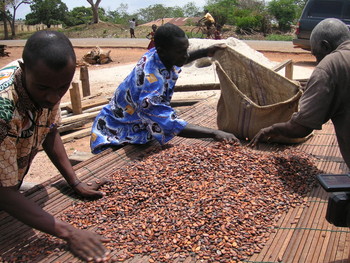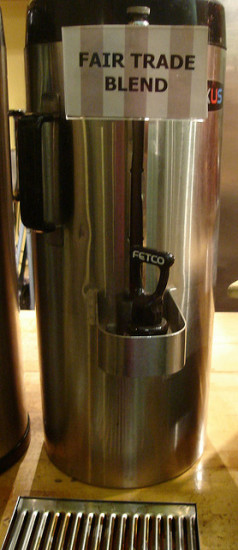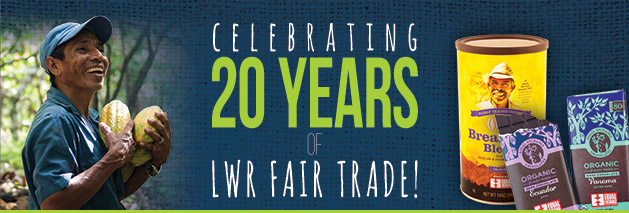In the 18th century the Swedish botanist, Carolus Linnaeus, renamed the cocoa tree giving it the Greek name Theobroma Cacao, which literally means 'food of the Gods'. Throughout its history, whether as a cocoa drinking chocolate or confectionery treat, chocolate has always been much sought after.
But few people think about the lengthy labor-intensive process that raw cocoa beans undergo before they become chocolate. Exploitative work hours, low pay, appalling working conditions — these are the harsh realities many producers in developing countries face as a result of our focus on profit. The human links of the supply chain are hidden from us when we shop.

But fortunately, many people are waking up to the shocking unfairness of international trade and demanding a better deal for the people who do the ‘dirty work’ for us.
And that is how Fair Trade was born.
Fair Trade is a response to inequities in the global market.
Fair Trade means producers are given a fair share of the financial benefits that result from the commodities they produce.
Fair Trade means producers receive more money to support their families and gain financial security.
Fair Trade means long-term contracts, so that producers are able to invest in improvements to their businesses (better equipment, more land) and their communities (gain access to health facilities, build schools).
BUT
Fair Trade is so much more than just a system of international commerce.
It is a commitment to treating all people as worthy of justice and care.
It is a challenge to consumerism.
It is pledge to promote mutual respect, standing with farmers.
It is a vision of a world where fairness and sustainable development are at the heart of trade.
It is an idea that shows how a successful business can also put people first.

Can I afford to support Fair Trade?
One obvious problem is that fairly traded goods can cost more. Fair Trade goods will always be a little more expensive than the cheapest non-fairly traded versions of the same product. But even though the price of a Fair Trade chocolate bar is often only negligibly higher than the cost of conventional, there are many people — especially those with low incomes — who cannot afford to pay the difference. But remember that Fair Trade foods like coffee and tea make up only a small part of the average weekly shopping budget and thus won’t noticeably impact your food allowance.
Achieving truly fair trade means seeing the world from an entirely different perspective — through the lens of kindness, justice, and grace. After all, Fair Trade is not about paying 60 cents more for your coffee; it's about caring for your "neighbors," even when they're on the other side of the world.


